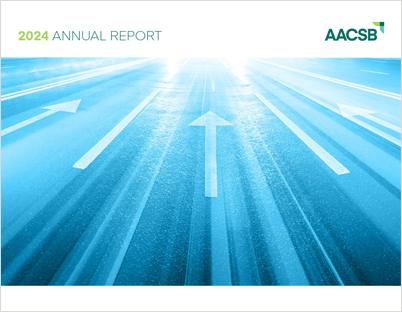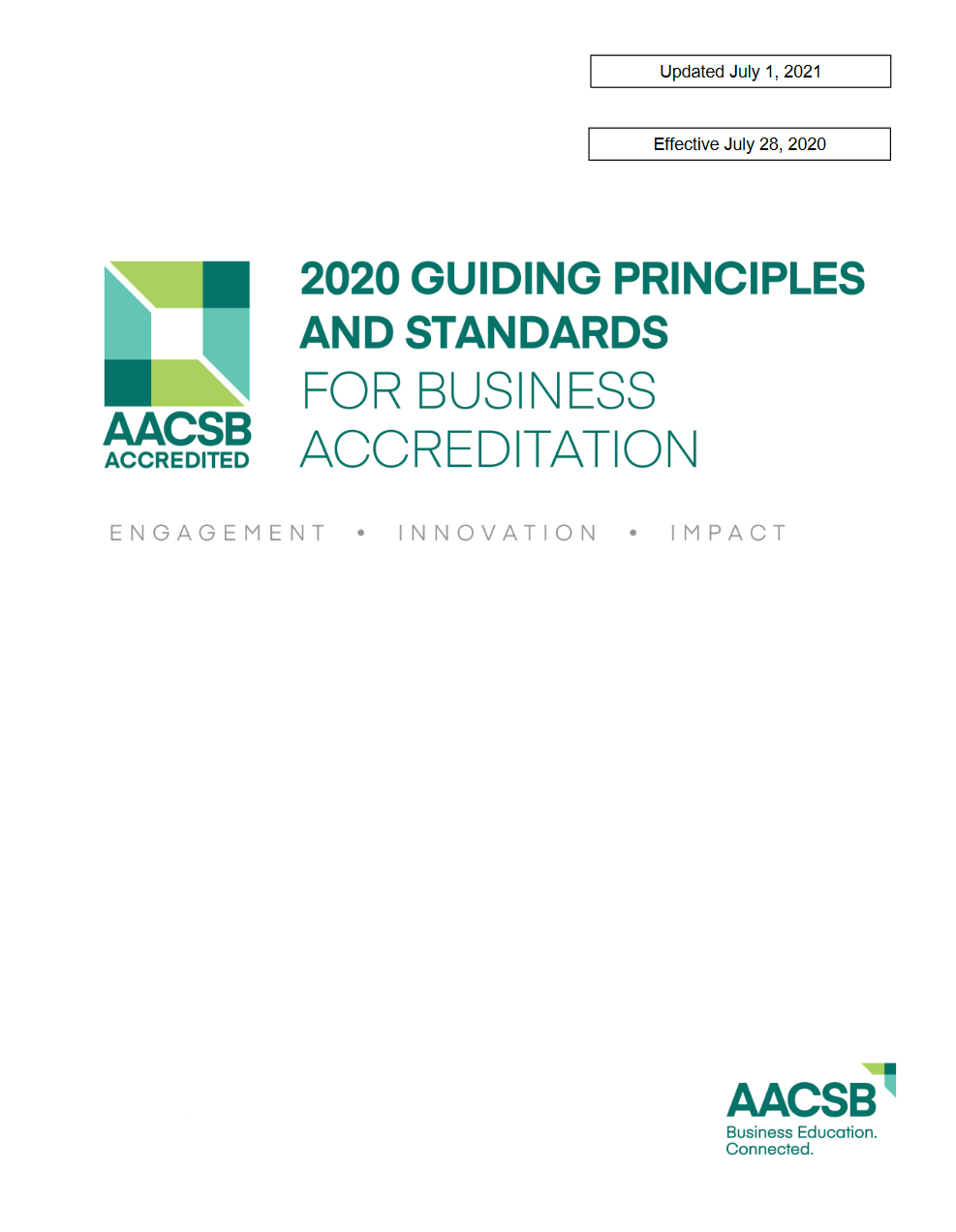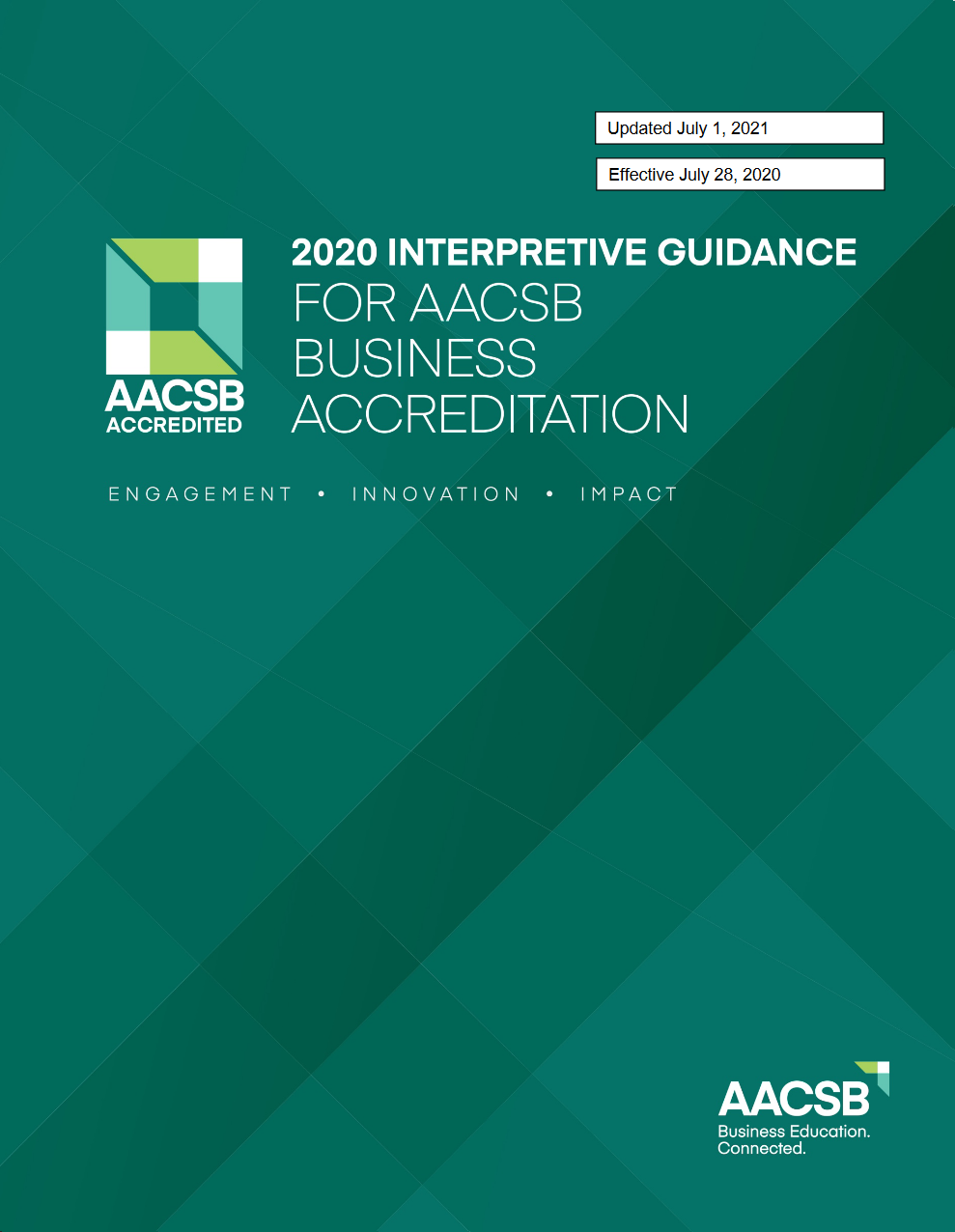Diversity and Inclusion in the Standards
Standards
1.4 Societal Impact
The school’s strategic plan clearly identifies the strategies, including the allocation of human and financial capital, through which it will make a positive impact on society, the practice of business, the diversity of people and ideas, and the success of graduates.
2.3 Financial Resources
Document the school’s financial management plan for recruiting, retaining, and developing appropriately qualified faculty and professional staff. Include documentation describing hiring practices, development, and evaluation systems for faculty that support diversity and inclusion considerations and ensure high-quality outcomes relative to mission and strategies.
3.4 Faculty and Professional Staff Development
The school has effective processes for providing orientation, guidance, mentoring, and inclusive developmental practices for faculty and professional staff.
4.1 Curriculum Content
All business degree programs include an understanding of, and appreciation for, cultural norms across various regions and countries and how such differences impact managerial decision-making.
4.3 Innovation, Experiential Learning, Lifelong Learning, and Societal Impact
Document experiential learning activities that provide business learners with knowledge of, and hands-on experience in, the local and global practice of business across program types and teaching and learning models employed.
Interpretive Guidance for Standard 4
With respect to pedagogy, innovation can be expressed and documented where faculty are experimenting with different approaches to teaching. Examples would be initiatives to overcome unconscious bias and promote inclusive pedagogy or approaches that recognize different learner styles and paces of learning.
Learners engage in experiential and active learning designed to be inclusive for a diverse student body.
6.1 Admissions, Progression, Degree Completion, and Career Development Support
Strategies are employed to identify and provide intervention and support for learners who are not progressing adequately, including underrepresented or otherwise at-risk populations.
6.2 Post-Graduation Success
Schools provide relevant and timely public disclosure data documenting overall academic program quality. Disclosures are not prescriptive but are informed by the school’s mission, strategies, and expected outcomes and may include...diversity and inclusion advances.
Interpretive Guidance for Standard 6
Admissions processes should be in place that ensure a learner population with diversity of all kinds...
Demographic data that should be reviewed normally include the following for the incoming class, for learners at various levels of degree completion where appropriate, and for graduates:
- Diversity statistics
- Age ranges and mean/median
- Proportion of first-generation students (if available)
- Average standardized test scores
- High school or preparatory school GPA and/or
- Professional experience
In addition to maintaining policies and programs intended to attract a diverse set of learners, the school should have programs and policies in place to ensure that students from underrepresented populations thrive and succeed.
7.2 Support for Teaching Effectiveness
Describe continuous improvement and development initiatives for faculty who focus on teaching enhancement and learning for a diverse learner population.
7.3 Faculty Preparedness
Faculty are adequately prepared to teach diverse perspectives in an inclusive environment.
Interpretive Guidance for Standard 7
The peer review team will typically review materials and policies related to hiring, promoting and maintaining qualified educators...
[Documentation in support of such policies may include]
- Hiring policies and practices that seek to attract a diverse faculty
- Policies and practices to ensure faculty employ inclusive pedagogy







